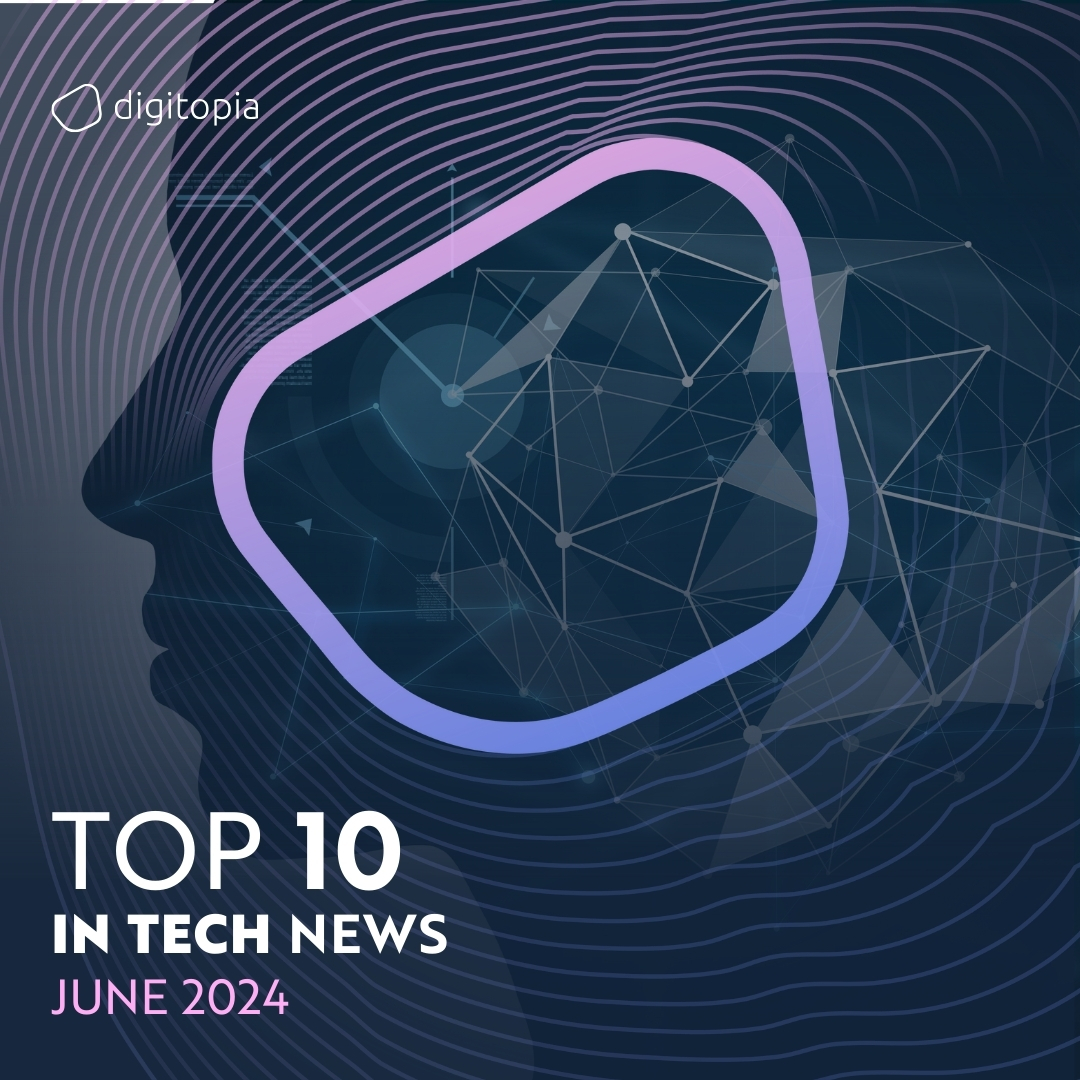
1- Nvidia passes Microsoft in market cap to become most valuable public company
Nvidia has surpassed Microsoft to become the world’s most valuable public company, with its market cap reaching $3.34 trillion due to a ninefold increase in its stock since the end of 2022, driven by the boom in generative AI. Nvidia now dominates 80% of the AI chip market for data centers, leading to a 427% increase in revenue from this sector in the most recent quarter. Co-founder and CEO Jensen Huang’s net worth has soared to $117 billion. Microsoft’s value stands at $3.32 trillion, boosted by its investment in OpenAI and the integration of AI into its products.
Source: CNBC
2- Medical startup Sword Health announces AI that patients can talk to
Sword Health announced Phoenix, an AI solution that guides patients through virtual physical therapy sessions, offering real-time feedback and adjustments. Founded in 2015, Sword helps patients manage pain from home, reducing the need for opioids and surgery. Phoenix enhances the patient experience by replicating a care specialist’s role, allowing patients to converse directly with it. Phoenix tracks progress, summarizes performance data, and makes session recommendations, which are reviewed by human clinicians. Sword has raised $340 million, with a valuation of $3 billion, and aims to expand its AI-powered solutions, having already completed over 3 million sessions.
Source: CNBC
3- NBC’s Paris Olympics coverage will have AI-generated recaps, split screen, and more
Sword Health announced Phoenix, an AI solution that guides patients through virtual physical therapy sessions, offering real-time feedback and adjustments. Founded in 2015, Sword helps patients manage pain from home, reducing the need for opioids and surgery. Phoenix enhances the patient experience by replicating a care specialist’s role, allowing patients to converse directly with it. Phoenix tracks progress, summarizes performance data, and makes session recommendations, which are reviewed by human clinicians. Sword has raised $340 million, with a valuation of $3 billion, and aims to expand its AI-powered solutions, having already completed over 3 million sessions.
Source: The Verge
4- Apple brings ChatGPT to iPhones in AI overhaul
Apple is enhancing Siri and its operating systems with OpenAI’s ChatGPT as part of a new personalized AI system called “Apple Intelligence” to improve user navigation. Announced at Apple’s annual developers show, the updates will integrate ChatGPT into iPhone and Mac systems, aiding tools like text and content generation, with a test version available in autumn. CEO Tim Cook claims this will elevate Apple’s products, but the market reacted coolly, and Apple faced criticism from Elon Musk and mockery from Samsung. The success of these AI tools is crucial for Apple to catch up with faster-moving rivals in the AI space.
Source: BBC
5- Boeing’s Starliner Has Finally Launched a NASA Crew Into Space
After multiple delays, Boeing’s Starliner spacecraft has finally launched two NASA astronauts into space, marking a significant milestone for the company. This achievement comes seven years behind schedule and follows two aborted attempts last month due to technical issues. Starliner, part of a decade-long development effort, aims to offer private human space travel and will serve as a transportation vehicle for missions to the International Space Station (ISS). Despite setbacks, including competition from SpaceX’s Crew Dragon, Boeing hopes Starliner’s success will enable it to fulfill its NASA contracts and potentially secure future missions to private space stations.
Source: Wired
6- AI Puts CIOs in the Spotlight, Right Next to the CEO
AI is elevating chief information officers (CIOs) to a pivotal role within companies, with 63% now reporting directly to their chief executives, a record high according to a Deloitte survey. This shift underscores the growing importance of CIOs in setting corporate AI strategies and modernizing IT systems to leverage generative AI. Traditionally focused on managing IT infrastructure, CIOs now have a significant share of business leadership, driving technology and AI strategies from the top. The trend highlights technology’s strategic importance and the critical role CIOs play in guiding AI initiatives, reflecting a shift from IT being viewed as a cost center to a key profit driver.
Source: Wall Street Journal
7- ChatGPT-5: release date, price, and what we know so far
OpenAI’s ChatGPT-5, expected to launch in late 2024 or early 2025, promises significant advancements in natural language processing and human-like interaction. This next-generation AI chatbot will expand multi-modal capabilities to include images and audio, and offer enhanced customizability and personalization for diverse user needs. As a major step towards artificial general intelligence, ChatGPT-5 will further modernize IT and data systems, enabling more sophisticated AI applications. OpenAI aims to release an advanced, smarter model that will surpass GPT-4, with potential subscription-based access.
Source: Read Write
8- Next-Gen Smart Warehouses: How AI Is Shaping The Modern Supply Chain
Warehouses, the backbone of the supply chain industry, are evolving with the integration of artificial intelligence (AI) and automation to meet modern logistics demands. The global warehousing market reached $714 billion in 2023, highlighting the sector’s critical role. The Covid-19 pandemic spurred a shift towards de-risking supply chains and increasing automation. AI-driven innovations such as autonomous drones for inventory management, robotic arms for handling diverse products, and large language models for enhancing human-machine collaboration are transforming warehousing. Additionally, Robots-as-a-Service (RaaS) subscription models make advanced technologies more accessible, particularly for small and medium-sized enterprises, fostering efficiency and productivity in the logistics industry.
Source: Forbes
9- Why Digital-Era Brands Are Opening Brick-And-Mortar Stores
Despite the rise of e-commerce, many brands still prioritize physical stores to deepen customer relationships and enhance brand experience. Forrester’s research shows that 72% of US retail sales will occur in brick-and-mortar stores until 2028, and 64% of Gen Z consumers prefer shopping offline. Brands like Dolce Vita, Skims, and Revolve have opened new retail locations to capitalize on this trend. Physical stores offer a tactile brand experience, reduce return rates, and serve as permanent marketing tools. Although the costs can be high, the benefits of omnichannel experiences and customer engagement make brick-and-mortar stores a valuable strategy for many brands.
Source: Forbes
10- OpenAI delays rolling out its ‘Voice Mode’ to July

